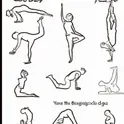Can Chakra Healing Cause Illness? Discover The Hidden Truths
Table of Contents
- Introduction
- Understanding Chakras and Their Functions
- Common Misconceptions About Chakra Healing
- Potential Risks of Chakra Healing Practices
- Signs of Imbalance in Your Chakras
- How Chakra Healing Affects Physical Health
- Expert Opinions on Chakra Healing Effects
- Personal Experiences: Healing or Harm?
- The Truth About Chakra Healing
- Conclusion
Introduction
Did you know that the ancient practice of Chakra Healing, often celebrated for its holistic benefits, may also have a darker side? As more people turn to energy healing for balance and wellness, questions arise about its potential connection to illness.
In this article, we will delve into the complexities of Chakra Healing, exploring both its transformative powers and the risks that may be overlooked.
By the end, you'll gain a clearer understanding of how these energy centers can impact your health positively or negatively.
Understanding Chakras and Their Functions
Chakras, the energy centers within our bodies, play a crucial role in maintaining our physical, emotional, and spiritual well-being.
Each of the seven main chakras corresponds to specific areas of our lives, influencing everything from our relationships to our creativity.
For instance, the heart chakra, located at the center of the chest, governs love and compassion, while the throat chakra facilitates authentic communication and self-expression.
Understanding chakra functions allows us to identify imbalances that may manifest as emotional distress or physical ailments, guiding us toward holistic healing practices.

Moreover, engaging with our chakras can foster personal growth and self-awareness. By practicing techniques such as meditation or yoga, we can activate and balance these energy centers, enhancing our ability to navigate life's challenges.
For example, when the solar plexus chakra is open and functioning optimally, individuals often experience a boost in confidence and decision-making skills.
Conversely, blockages in this chakra may lead to feelings of powerlessness. Embracing the wisdom of chakras not only empowers us to heal but also invites deeper connections with ourselves and others, ultimately transforming our approach to life.
Common Misconceptions About Chakra Healing
Chakra Healing is often shrouded in misconceptions that can limit its transformative potential. One prevalent myth is that chakra healing is solely about spiritual enlightenment or metaphysical experiences.
While many practitioners do report profound spiritual insights, chakra healing fundamentally focuses on balancing energy centers to promote physical, emotional, and mental well-being.
This holistic approach recognizes that our emotional states directly influence our physical health, making chakra healing a practical tool for improving everyday life.
Another common misunderstanding is the idea that chakra healing requires extensive training or special abilities. In reality, anyone can engage in practices such as meditation, breathwork, or yoga to access and balance their chakras.
These techniques are rooted in self-awareness and mindfulness, allowing individuals to tap into their innate healing capacities.
Furthermore, the belief that only certain “chosen” individuals can facilitate chakra healing overlooks the empowering truth that everyone has the potential to heal themselves through conscious intention and awareness.
Embracing this perspective opens the door to personal empowerment and encourages a deeper exploration of one’s energy dynamics.
Potential Risks of Chakra Healing Practices
While chakra healing practices are often celebrated for their potential benefits, it's essential to consider the risks associated with them. One significant concern is the possibility of emotional upheaval.
As practitioners work to unblock or balance chakras, they may inadvertently stir up repressed emotions or traumas.
This can lead to a healing crisis, where individuals experience heightened anxiety or distress before achieving a sense of balance.
It's crucial for those engaging in chakra healing to be prepared for this emotional rollercoaster and to seek support if needed.
Another potential risk lies in the reliance on chakra healing as a substitute for conventional medical treatments. While many people find value in holistic approaches, using chakra healing as a primary treatment for serious health issues can be dangerous.
The lack of scientific validation for chakra practices means that individuals may overlook necessary medical interventions.
Therefore, it’s vital to approach chakra healing as a complementary practice rather than a replacement for professional healthcare, ensuring a balanced approach to overall well-being.
Signs of Imbalance in Your Chakras
Imbalance in your chakras can manifest in various subtle yet telling ways, often reflecting deeper emotional and physical states.
For instance, if you find yourself frequently feeling anxious or overwhelmed, this might indicate a blockage in your solar plexus chakra, which governs personal power and confidence.
Similarly, persistent feelings of sadness or isolation could suggest an imbalance in the heart chakra, where love and compassion are meant to flow freely.
Physical symptoms can also serve as crucial indicators of chakra health. Chronic fatigue may be linked to an underactive root chakra, while frequent throat issues could point to imbalances in the throat chakra, affecting your ability to communicate effectively.
By tuning into these signs, you can embark on a transformative journey towards restoring harmony within your energy centers.
Embracing practices such as meditation, yoga, or even sound healing can help realign your chakras, fostering not only physical wellness but also emotional resilience.
How Chakra Healing Affects Physical Health
Chakra healing operates on the principle that energy centers within the body significantly influence physical health.
Each of the seven main chakras corresponds to different bodily systems and emotional states, creating a holistic framework for understanding health.
For instance, the root chakra is linked to foundational aspects of safety and security, impacting adrenal health and the immune system.
When this chakra is blocked or imbalanced, individuals may experience physical symptoms such as fatigue or chronic pain, showcasing how emotional well-being directly correlates with physical conditions.
Moreover, studies suggest that practices such as meditation, yoga, and sound therapy can effectively realign chakras, leading to improvements in physical health outcomes.
By fostering a balanced energy flow, chakra healing can enhance circulation, reduce inflammation, and even aid in digestion.
This interconnectedness encourages a proactive approach to wellness, where emotional healing through chakra work can pave the way for improved physical vitality.
As more individuals seek integrative health solutions, recognizing the synergy between chakra healing and physical health offers a compelling avenue for personal transformation.
Expert Opinions on Chakra Healing Effects
Experts in holistic health emphasize that the effects of chakra healing extend beyond mere relaxation; they can profoundly influence emotional and physical well-being.
According to practitioners, balancing the chakras can lead to enhanced energy flow, which often translates into improved mood and cognitive clarity.
Dr. Lisa Miller, a psychologist specializing in energy medicine, notes that many individuals report a reduction in anxiety and stress when engaging in chakra-focused practices like meditation or yoga.
This suggests a tangible link between spiritual alignment and mental health.
Moreover, chakra healing effects are increasingly being explored within the context of integrative medicine.
Researchers have found that patients who incorporate chakra work alongside conventional treatments often experience faster recovery times and less pain perception.
This synergy highlights the potential of energy healing as a complementary approach, allowing individuals to take an active role in their healing journeys.
As more studies emerge, the conversation around chakra healing effects is evolving, suggesting that these ancient practices may hold keys to unlocking modern health challenges.
Personal Experiences: Healing or Harm?
Personal experiences often serve as double-edged swords, wielding the potential for both healing and harm. When we encounter trauma or adversity, the narrative we construct around these experiences can significantly influence our psychological well-being.
For some, sharing their stories fosters a sense of connection and validation, acting as a balm for emotional wounds. This communal aspect of healing underscores the importance of storytelling in therapeutic settings, where individuals find solace in realizing they are not alone in their struggles.
Conversely, revisiting painful memories can inadvertently lead to re-traumatization. The act of reliving past experiences may unearth buried emotions, causing distress rather than relief.
This paradox highlights the need for discernment when engaging with personal narratives; not all stories offer healing.
By critically evaluating our motivations for sharing and the contexts in which we do so, we can better navigate the fine line between catharsis and harm, ultimately empowering ourselves and others on their journeys toward recovery.
The Truth About Chakra Healing
Chakra healing is often perceived as a mystical practice rooted in ancient traditions, but its essence goes beyond the spiritual realm. At its core, chakra healing aims to restore balance and harmony within the body's energy systems.
Each of the seven primary chakras corresponds to specific physical, emotional, and spiritual aspects of our lives. For instance, the root chakra connects to our sense of safety and security, while the heart chakra embodies love and compassion.
When these energy centers become blocked or imbalanced, it can lead to various physical ailments and emotional disturbances.
Recent studies have begun to bridge the gap between traditional chakra healing and modern science, highlighting the role of mindfulness and meditation in promoting overall well-being.
By engaging in practices that target these energy centers, individuals can experience profound shifts in their mental and emotional states.
Moreover, the incorporation of chakra healing into daily routines such as yoga, sound therapy, or even simple breathing exercises can enhance one's self-awareness and foster a deeper connection to oneself.
This holistic approach not only empowers individuals to take charge of their health but also encourages a more profound understanding of how energy flows through our bodies and impacts our everyday lives.
Conclusion
Ultimately, the relationship between chakra healing and physical illness is complex and warrants further exploration. While many practitioners advocate for its positive effects on mental clarity and emotional balance, there are concerns regarding potential negative outcomes if misapplied.
Individuals should be aware of the importance of grounding their healing practices in scientific understanding and personal experience.
As we continue to uncover the hidden truths surrounding chakra healing, it becomes increasingly clear that a balanced approach is vital. Engaging with both traditional and alternative medicine can lead to a more holistic understanding of health, so take the time to educate yourself before embarking on your healing journey.
People Also Asked
Q1: Can chakra healing cause physical symptoms?
Yes, during energy shifts, people may experience fatigue, headaches, or nausea often temporary but worth noting.
Q2: Is chakra healing scientifically proven?
There’s limited scientific evidence. Most claims come from anecdotal experiences and holistic practitioners.
Q3: What are the signs of a blocked chakra?
Emotional instability, chronic fatigue, poor focus, and recurring health issues may suggest chakra imbalance.
Q4: Can opening chakras trigger trauma?
Yes. Releasing blocked energy can bring suppressed emotions to the surface, sometimes triggering distress.
Q5: Should chakra healing replace medical care?
No. Chakra healing should complement, not replace, professional healthcare, especially for serious conditions.
Q6: How do I know if chakra healing is helping or hurting?
Track changes in emotional and physical well-being. If symptoms worsen, consult a health professional.
Q7: Are there risks for beginners in chakra healing?
Beginners may experience emotional overwhelm if they move too fast without grounding or guidance.
Q8: How do I safely explore chakra healing?
Start slowly with practices like meditation or breathwork. Avoid unqualified practitioners.
Q9: Can chakra healing make anxiety worse?
In some cases, yes especially if emotional wounds surface without proper support or preparation.
Q10: What’s a healing crisis in chakra work?
A temporary period of emotional or physical discomfort that may arise as blocked energy clears.





